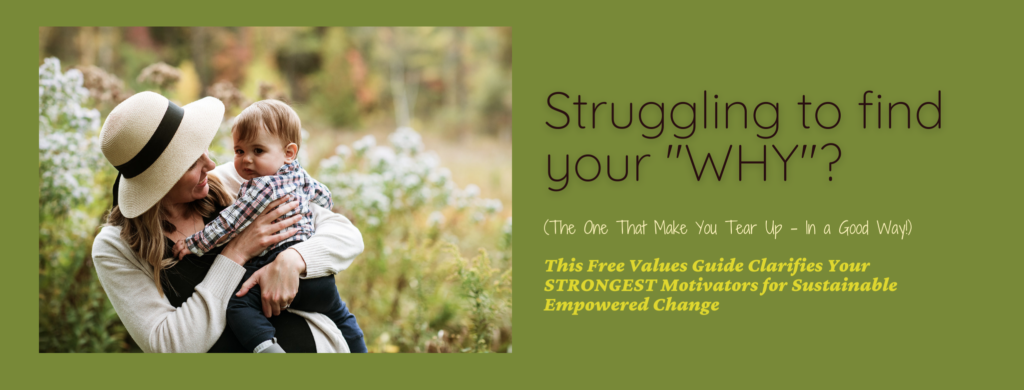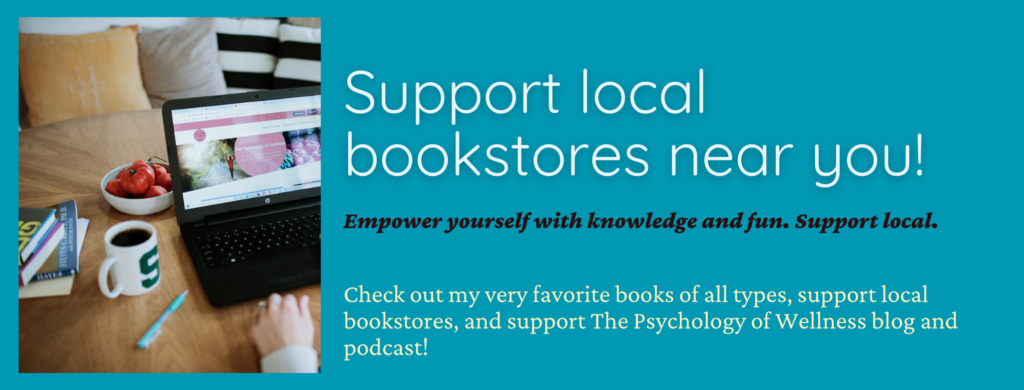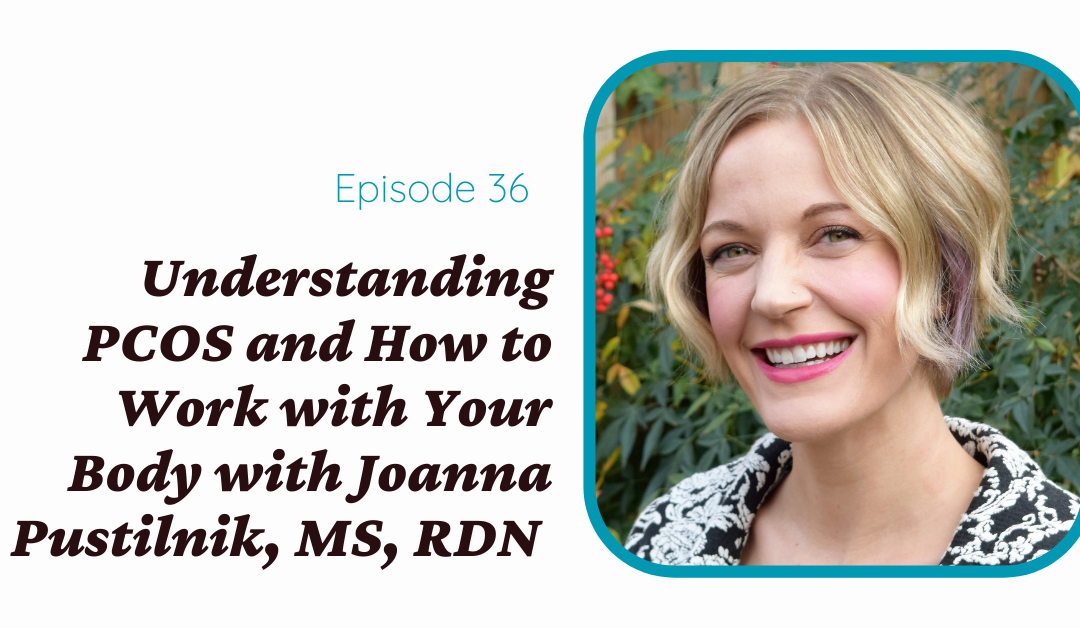Podcast: Play in new window | Download
Subscribe to The Innovative Therapist Podcast! Apple Podcasts | Spotify | RSS | More
Episode 36. This week I am incredibly excited to talk to Joanna Pustilnik, MS, RDN. Joanna is a non-diet Registered Dietitian, Certified Diabetes Care and Education Specialist, certified intuitive eating counselor, and personal trainer with a background in disordered eating and eating disorders, metabolic and digestive health, plant-based nutrition, and fertility and women’s health with special focus of Polycystic Ovary Syndrome. She sees clients locally in Arlington, Virginia at MindBodyHealth.com
Are You New Here?
Welcome! I’m so glad to have you. You might be wondering what this blog and podcast are all about.
We relate everything in this podcast back to motivation, but not the hustle and grind kind. Truly sustainable motivation that keeps you feeling energetic and engaged in your life for the long haul. We talk about why “I’m just not motivated” is a myth, and why the TYPE of motivation you have is so important to fully understand. If you are ready to learn about motivation and respecting your body in an effective way so that you can live a life you truly love, you are in the right place.
Check out the Foundational Episodes of the Motivation Made Podcast here!
- Introduction: What is this podcast all about?
- Episode 1: Want to Get & Stay Motivated? A Crash Course on Motivation, Weight Loss, and Health
- Episode 2: How Dieting Steals Our Motivation
- Episode 3: How To Get Motivated To Improve Your Health (Motivation 101)
- Episode 4: How to Transform Health Fears Into Forward Progress
“I’m terrified I’m wasting my life.”
I wrote this in a journal in the middle of the diet-binge cycle. And frankly, I kind of was.
I’m here to tell you it’s never too late to gain control of your eating, respect your body, and live a life that’s TRULY consistent with your values. But you need to take the first step.
One of the very first steps in developing truly autonomous and body respecting motivation is to clarify what actually matters to you. Not your mom, not your sister, not your best friend, YOU.
The more you reflect on this, the more you can connect your values to your behaviors in a sustainable and empowering way.
Grab the free guide at DrHondorp.com/goals and get started today. I promise you, it’s never to late to stop dieting and start truly living. You will not regret it.

What is Polycystic Ovary Syndrome (PCOS)?
PCOS stands for Polycystic Ovary Syndrome, and it’s important to note that it is a SYNDROME rather than a disease.
What’s the difference?
Well, diseases have one cause, but symptoms can show in very different ways. When it comes to syndromes, we aren’t 100% sure what the cause is but the symptoms are very similar.
We do know that PCOS is a hormonal syndrome that usually shows in increased levels of androgens, which can but doesn’t always lead to irregular menstruation, persistent acne, development of cysts on ovaries, and more…which can in turn cause issues with fertility.
Androgens should be found in everyone. These hormones include testosterone and DHEAS, and these are the hormones that increase sex drive and focus. We often see higher levels of androgens in those who have been diagnosed with PCOS, but this can vary from person to person.
How is it diagnosed?
The truth is, it isn’t 100% clear.
There is still a large gray area when it comes to PCOS, and there is also disagreement and conflicting information in the medical field.
However, the Rotterdam criteria is mostly commonly used and accepted to diagnose PCOS.
It requires that a patient must have two out of three of these criteria:
- Oligo-ovulation (irregular ovulation) or Anovulation (no ovulation)
- Hyperandrogenism (high levels of androgens)
- Polycystic ovaries
Hypothalamic Amenorrhea
It’s possible for Hypothalamic Amenorrhea to be misdiagnosed as PCOS, which is incredibly dangerous.
HA is a condition that is characterized by the hypothalamus failing to produce a key hormone that signals the brain to produce estrogen and progesterone. Without adequate amounts of these hormones, menstruation can come to a halt and ovulation can be suppressed, leading to infertility.
When women are diagnosed with PCOS, they are often told “just lose weight”. This is the exact opposite of the treatment for HA, which may include eating at least 2500 calories per day.
For this reason, it’s incredibly important to educate yourself and find a doctor you can truly trust with your diagnosis.
What are Some of the Myths and Harmful Messages Given to Those with PCOS?
“Lose weight. Go on a low carb diet.” Other factors such as stress and inflammation need to be taken into account when it comes to causes and treatments of PCOS. The truth is that this is a genetic condition, and androgens are independent of obesity.
Not to mention, low carb diets can actually cause or worsen insulin resistance.
If we aren’t eating enough carbs, we could be exacerbating the root cause of PCOS.
Do you need to lose weight to have a healthy pregnancy?
Walter Willett, who created the Nurses Health Study, came up with The fertility Diet which as Joanna says, has some GREAT data.
It involves a diet low in animal protein (particularly red meat), high in plant-based protein (even soy), legumes, fruits, veggies and grains, and in general is very anti-inflammatory. He also adds that whole fat dairy can be very helpful. Women who eat a serving of whole fat dairy per day had increased ovulation rates, while low fat dairy can pull out feminine hormones and leave the androgens, which could further increase those hormones and exacerbate fertility issues.
All kinds of diets are recommended ALL the time for PCOS women and women wanting to get pregnant in general. They’re told to go Paleo, or cut out certain food groups, or just eat meats, fruits, veggies, etc…
But don’t be afraid to include the foods you enjoy! Your relationship with food is so so important, and there’s simply no need to be restrictive. Women wanting to have a healthy pregnancy can absolutely prioritize health, but weight loss and the stress and damage that come from dieting and restriction are completely unnecessary, and can actually suppress ovulation. Look at the QUALITY of your diet rather than eating less.
What to do for PCOS instead of “just try to lose weight”
“If there’s one thing to focus on, an anti-inflammatory diet.”
Joanna Pustilnik, MS, RDN
Food relationship is always most important, and we have to pay attention to what we WANT to eat. However, we also have to keep in mind that pro-inflammatory diets decrease ovulation.
Focusing on lifestyle behaviors and balance while finding joy in activities that promote health can completely change your life.
Joanna mentions that it can be really helpful to take foods or recipes that may be a bit bland, and play around with different spices and ingredients until you find something you enjoy. You could also take a meal that you love and replace old ingredients with similar anti-inflammatory ingredients that help with PCOS.
Joanna also talks about a great study on exercise that showed less weight loss, but an INCREASE in ovulation rates in the women who participated.
Anti-Inflammatory Diet
There are tons of foods and food groups involved in an anti-inflammatory diet, but Joanna provides us with some staple foods and tips to consider when dealing with PCOS.
- Fruits and veggies
- Red wine
- Limited processed foods
- Eat the rainbow!
- Cruciferious veggies: broccoli, brussel sprouts, cauliflower.
- Beans and grains (pull out excess androgens from the body)
- Omega 3s, fish, chia seeds, flax seeds
- Vitamin D supplement
- Moderate carb throughout the day
- Spices, fresh herbs, cinnamon, Turmeric curcumin
Take Home Messages for PCOS or Related Symptoms
- PCOS is a syndrome, and the diagnosis process isn’t clear cut. There are a lot of gray areas in this syndrome, and standard medicine doesn’t do great with grey areas. For this reason, you will want to work to educate yourself, but more importantly find a provider who is willing to learn with you, and do some investigative work.
- If you have PCOS, it is 100% not your fault. There is a genetic basis and the ways we typically treat folks with these symptoms is SEVERELY lacking and very often not evidence-based. In fact, the advice to “lose weight and follow a low carb diet,” will likely result in weight gain and increase insulin resistance, stress and low grade inflammation which may worsen the underlying cause of PCOS.
- Find the root cause. This is essential, and standard medical treatments often just treat symptoms, not causes. And yet, if we want long-term relief, an analysis of root causes is likely needed. All women deserve this, so let’s keep asking for it and searching until we find someone who will walk alongside us to think of our bodies more wholistically.
- You do have control and can feel empowered. Focus on food relationship #1, as this is an immense source of stress for many women, then look at gentle nutrition (see above for details), joyful movement, stress management, among other areas. Check out my episode with Dr. Theresa Osmer coming out next week for more information on Mercier Therapy which may provide another solution.
Support Independent Bookstores Near You!
Did you know that that if nothing slows their momentum, Amazon will have almost 80% of the book market by the end of 2025?
Look, I love the convenience of Amazon, but I’ve got a super cool way that you can support local bookstores and my blog and podcast simply by buying books like you already do! You can choose any bookstore on the list in the US and Canada (they plan to expand to other counties in the future), OR you can just let the donation get split between all stores. As of this recording, they have raised 15 million dollars for local bookstores. In my bookshop, you will see my absolute favorite books related to health and wellness, courage and vulnerability, and even my favorite fiction and kids books!
My recent favorite related to improving the quality of our lives was Digital Minimalism. Our family actually has decided to do an optional screen-free August to re-evaluate the role of screen time in our lives.
So if you believe in supporting local businesses, please consider buying your books through Bookshop from now on!
The Psychology of Wellness Bookshop Link.

Disclaimer: This blog and podcast are for informational and educational purposes only. It is not a substitute for individual professional advice or treatment, including medical or mental health advice. It does not constitute a provider-patient relationship.
Disclosure: Using the Bookshop.org links in this post means that I would get an affiliate fee if you purchase from the online bookshop (this supports my business and local bookstores, too!).
Credit: This blog post was co-written and edited by Sarah Grace Rapoport, Blog and Podcast Manager and Psychology of Wellness Intern, and Dr. Shawn Hondorp.
